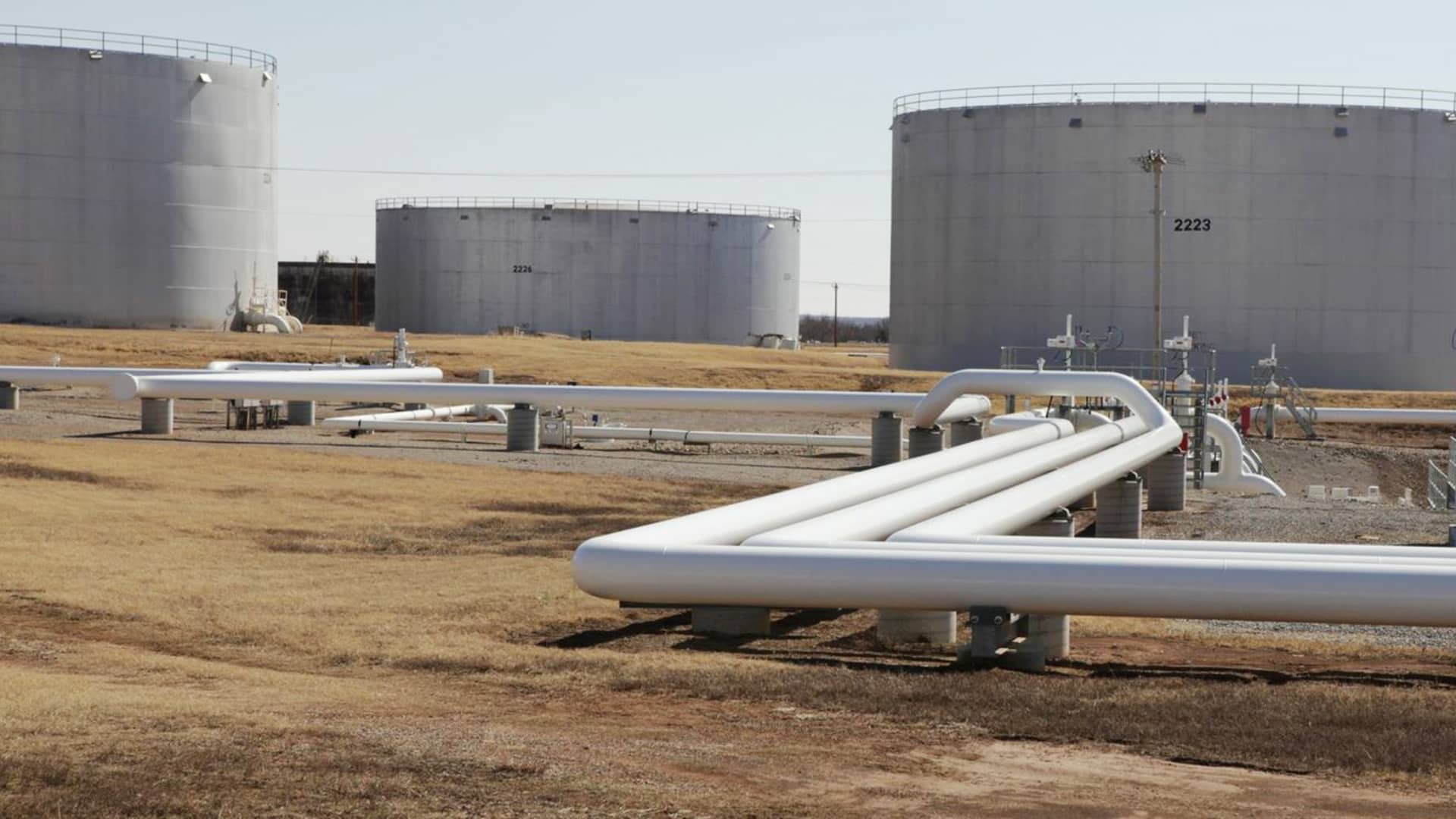Oil prices rise as signs point to tightening global crude market

Crude oil futures rose Thursday amid signs of a tightening global market and as the geopolitical outlook in the Middle East remains uncertain.
The West Texas Intermediate contract for April gained 67 cents, or 0.86%, to $78.58 a barrel. The Brent contract for April added 55 cents, or 0.66%, to $83.58 a barrel.
The price premium of the first month futures contracts over the following months has increased in recent weeks, according to UBS strategist Giovanni Staunovo.
A premium for immediate versus later delivery is typically a sign that the oil market is tightening, Staunovo wrote in a note to clients Thursday.
The market may be tightening due to winter storms in North America last month that knocked out 1.4 million barrels per day of global crude production, Staunovo wrote. The weather-related disruptions happened at the same time India’s oil demand rose 8.2% year over year in January.
Meanwhile, compliance with OPEC+ production cuts has increased with exports down about 900,000 barrels in February, the lowest level since August, according to Staunovo.
“We retain a modestly positive outlook as we expect the oil market to remain slightly undersupplied this year,” Staunovo wrote.
In the U.S., commercial crude stockpiles rose by 3.5 million barrels last week while total inventory including finished products was largely flat, according to the Energy Information Administration. U.S. stockpiles have increased in recent weeks as the refinery utilization rate has dropped.
The geopolitical outlook in the Middle East remains uncertain as the U.S. works toward a cease-fire in Gaza while tensions escalate on the Israel-Lebanon border and in the Red Sea.
Israel War Cabinet member Benny Gantz said Wednesday that efforts to “promote a new outline” to secure the release of hostages held in Gaza “indicate the possibility of moving forward.”
White House Middle East envoy Brett McGurk will meet with Israeli Prime Minister Benjamin Netanyahu Thursday to discuss efforts to free hostages held by Hamas.
A temporary cease-fire in exchange for releasing hostages in Gaza would potentially reduce the risk of the conflict engulfing the Middle East and disrupting crude supplies.
But Israel has launched repeated strikes against Hezbollah targets in Lebanon in recent days, and Houthi militants in Yemen continue to attack shipping in the Red Sea.
Don’t miss these stories from CNBC PRO:
- Warren Buffett’s Berkshire keeps new stock pick secret — again. Here’s what it means
- Michael Burry of ‘The Big Short’ fame buys Amazon, Alphabet and a dozen other new stocks
- Move over, Nvidia. There’s a new hot AI play that has soared 960% in the past year
- Morgan Stanley’s Slimmon names 3 stocks to buy right now: ‘It’s going to be a good year for equities’
- This little-known bank is offering one of the highest CD rates



